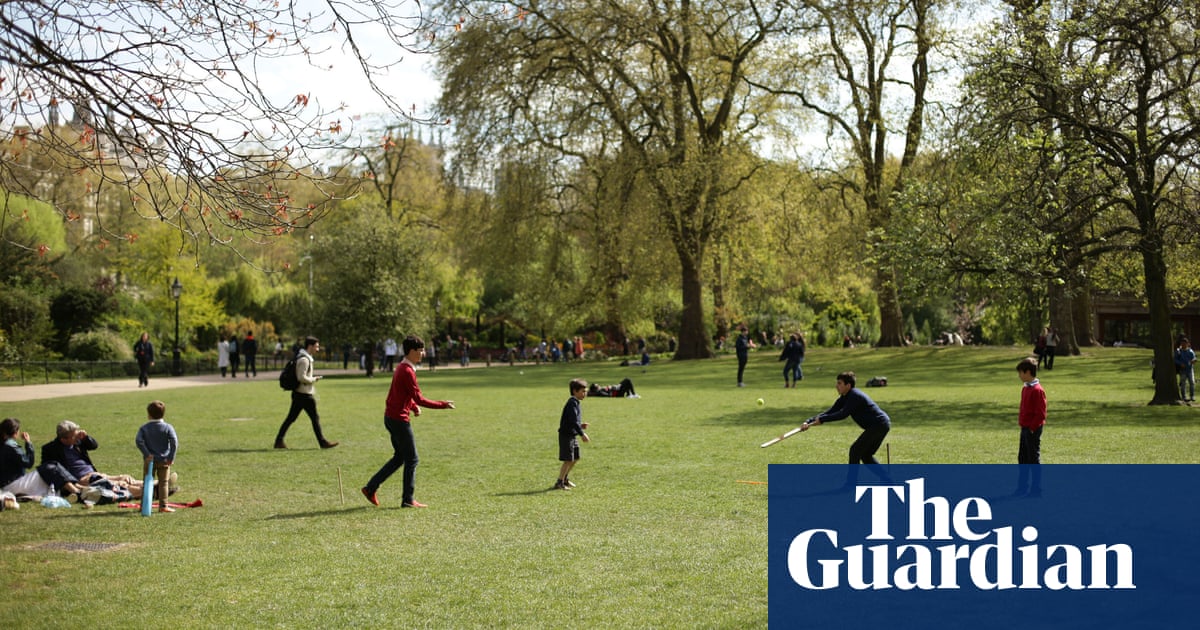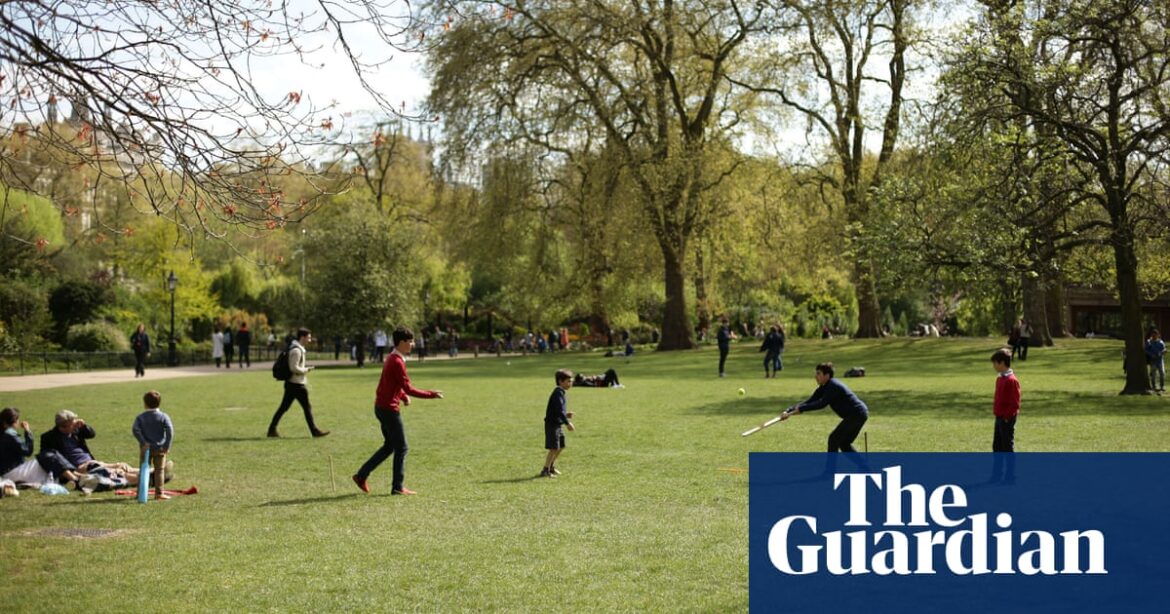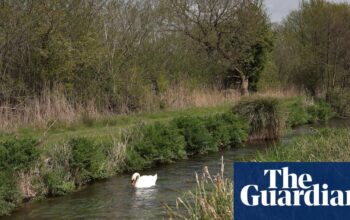
More than three-quarters of children want to spend more time in nature, the National Trust has found, as the conservation charity pushes ministers to ensure youngsters are no more than a 15-minute walk from green spaces.
Nearly two-thirds – 63% – of parents are able to take their children to nature spaces only once a week or less, citing accessibility as the main barrier, the survey of 1,000 children aged seven to 14 and 1,000 parents by the trust and the children’s newspaper First News found.
The trust is calling on the government to live up to its previous promise for every person to be 15 minutes away from nature – a target backed by 80% of parents in the survey – by enshrining the access in law.
As part of a series of commitments to level up access to nature, Rishi Sunak said in January 2023 that everyone would live no more than 15 minutes from green space.
However, in December that year the Guardian uncovered documents that suggested the government had no intention of meeting the target.
It is understood Natural England is working with the Department for Environment, Food and Rural Affairs (Defra) to develop methodology for a new baseline for the 15-minute commitment based on walking routes rather than straight-line distances.
The National Trust director general, Hilary McGrady, said: “The benefits of ensuring access to nature is plain to see but there is unequal access to it. We’d like to see the largest improvement in access to urban green space since the Victorian era.
“We know from our own work as well as the polling around this issue there is huge public appetite to address these issues – it is a real vote winner. The impact that being in nature has on young people is profound and we need policymakers to stand up and develop a long-term plan to ensure everyone has access to green space. Research shows that if children and young people can engage with nature early in life, they grow up to care about the natural world and are more likely to take action to protect it.”
The trust said the survey was commissioned to show the disparity in access to green space as well as the public demand for it.
It revealed that nearly a third (31%) of parents from lower-income households cited the main barrier to accessing nature as cost. It also revealed that 76% of children wanted to spend more time in nature, while 56% of children wanted better access to nature and green space.
Research has shown that access to green space benefits children in a variety of ways including better lung health, stronger bone density, as well as mental and physical wellbeing.
Government data shows that 38% of people live more than a 15-minute walk from a green or blue space.
The environmental improvement plan (EIP) announced in January 2023 was required under the Environment Act, and was meant to translate into policy the commitment made in the 25-year environmental plan, set out in 2018, to “improve the environment within a generation and leave it in a better state than we found it”.
The then environment minister, Thérèse Coffey, said at the time: “I am particularly pleased by our pledge in this plan to bring access to a green or blue space within 15 minutes’ walk of everyone’s homes – whether that be through parks, canals, rivers, countryside or coast.”
The National Trust and First News are launching a nature photography competition, called Nature Around Me, to encourage young people to notice and engage with everyday nature.
A Defra spokesperson said: “We are creating more opportunities for people to access nature and spend time outdoors in our countryside – it’s why we have set out our ambition for every household to be within a 15-minute walk of a green space or water.
“This is especially important for children and so we have put in £2.5m specifically to help young people to spend time in nature. Alongside this, we have announced plans for a new national park, made £7m available for green community spaces and opened 1,075 miles of the King Charles III coast path.”
Source: theguardian.com



